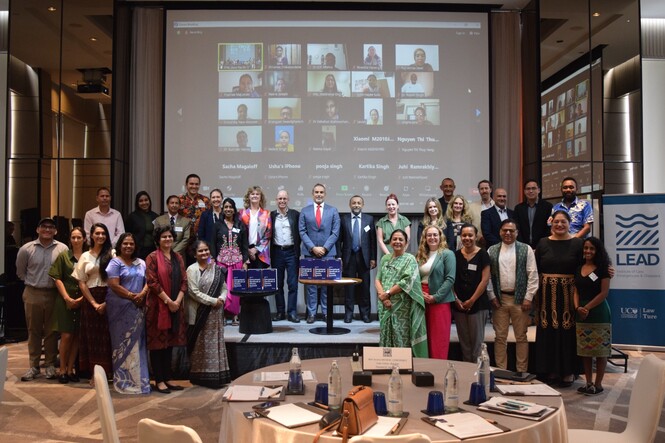
Recognising the need for better coordination and cooperation in disaster risk reduction and disaster preparedness and response in Asia Pacific, IFRC alongside the NAPSIPAG Disaster Research Group, the Institute of Law Emergencies and Disasters, and Sphere India, held a conference on the ‘Role of Disaster Law in Mitigating Disasters and Strengthening Climate Resilience.’
Held from November 29-30, 2023, in Bangkok, the conference brought together government officials, representatives from National Red Cross Red Crescent Societies, and experts from regional organizations. The conference focused on enhancing legal provisions for vulnerable populations and adapting legislation to the evolving landscape of climate-related disasters.
A highlight of the event was the discussion on the unique challenges faced by Small Islands Developing States and the interplay between disaster law and International Humanitarian Law. These sessions, led by IFRC experts, underscored the importance of legal preparedness in effective disaster management.
Finau Heuifanga Leveni, IFRC’s Regional Disaster Law Coordinator said the diversity of challenges faced in Asia Pacific calls for a unified and adaptable approach to disaster law.
"This conference has been an excellent platform for sharing experiences and forging a path forward in legal preparedness."
The conference also shed light on the broader implications of climate change across Asia Pacific. Participants engaged in in-depth discussions about the need for comprehensive disaster law frameworks that are adaptable to the varied and complex nature of climate-induced disasters.
These frameworks are crucial for not only mitigating the immediate impacts of disasters but also for building long-term resilience in communities that are increasingly vulnerable to climate change.
"This event marks a significant step towards strengthening our response to a changing climate. By updating our legal frameworks, we can better protect vulnerable communities and ensure effective disaster management," said Finau Heuifanga Leveni.